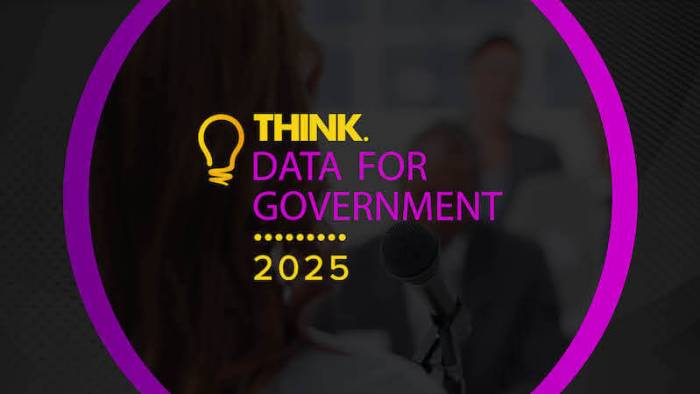What did you enjoy about school?
I’ve always loved books, especially when it comes to history. But staying focused was a bit of a struggle, possibly due to my ADHD. However, when it came to my GCSEs, I had an end goal in sight and I was able to channel my energy with timeboxing, which helped me overcome focus challenges. I also had very supportive teachers along the way.

Fast forward to college, where I finally got to dive into what I truly loved – classics!
What qualifications do you have?
I graduated from Leeds University with a degree in Classical Civilisation. Right after that, I jumped into the world of data protection. I pursued a part-time Master’s in Law at Northumbria University, focusing on Information Management (incorporating data protection), which took me three years to complete. I’ve almost completed my MBA, with a focus on Information Systems Strategy and Governance.
Has your career path been a smooth transition, a rocky road or a combination of both?
It’s been a bit of a mix. Even though I landed my first data role straight out of university, I took a lot of risks to supercharge my career.
I stumbled upon this article that said having children sets your career back five years per child. That got me thinking; I want to have two children when I’m roughly 30, so how can I advance my career to get where I want to be at 40 but at 30. So, I made the bold move and spent all of our house savings to fund my master’s degree. My husband was supportive of this!
I took on roles in some pretty challenging spots; waking up at 3:30am to commute to the office, positions that were grossly underpaid for the responsibilities I had, and contract jobs with zero days’ notice periods. But every role had to be a step up the ladder and a fast paced learning experience.
What is the best career advice you can give to others?
It really comes down to what you want from your career and personal life. If you’re thinking about starting a family down the line, then your 20s might be the time to take more risks and push yourself a bit harder. Contract roles are a great way to get a career step up every six months or so, as long as you’re constantly learning and delivering in that role. They might lack the comfort of permanent roles, but in your 20s, it’s okay to take roles further afield or with less pay. Contracting is a competitive field but the experience pays off in the long haul.
If you had to pick one mentor that had the biggest influence on you, who would it be?
My nan is a force to reckon with: a single mum raising four kids in the 60s and 70s, totally self-sufficient and highly intelligent. She is extremely entrepreneurial, running a variety of her own businesses from her own BnB to a canal boat shipyard. She instilled in me the importance of finding my niche and driving into it. She is not only business-savvy, she is also hilarious.
From where do you draw inspiration?
My passion for data sharing in the public sector runs deep.
I find comfort in structured processes. I have a good eye for streamlining things, and making them easier to follow. I’m passionate about the practical implementation of data privacy and overcoming data sharing concerns in real-world scenarios. Such as in the field of social care there are a lot of concerns about data sharing and that can sometimes hinder the sharing of crucial information which could be vital for social workers to effectively do their job.
Seeing flawed data practices across various fields motivates me to make a difference. I want to ensure people’s safety and privacy. That’s where the concept of Anonymesh comes in – born out of understanding the challenges firsthand. For example when social workers lack vital information, it infringes their ability to make informed decisions.
I also draw inspiration from being a role model for those under my care. Whether it’s my toddler or my little sister, I’ve always strived to set a positive example and set them up for success. And with my ADHD, motivation isn’t something I struggle with – if anything, I find it hard to stop.
What is the biggest challenge you’ve faced to date?
If you liked this content…
I’ve found it challenging to learn the privacy engineering side of things. I don’t come from a computer science or data science background. Luckily, I’ve had some great mentors at Thoughtworks, like Jim Gumbley and Katharine Jarmul, who’ve been instrumental in this journey. My advantage though, is that I understand the problem space. I’m starting from what we are trying to solve, then learning the solution. This approach really helps anchor the tech, making it easier to understand despite not having a more technical background.
What qualities do you feel makes a good leader?
Empathy is key – realising that behind every task is a person. Understanding what motivates people. Our workload is a mix of exciting and more business as usual tasks, making sure workloads get divided up fairly is crucial.
From a work viewpoint what has the last 12 months been like?
Working out how to work and how to mum, without one impeding the other.
Learning privacy technologies from Katharine Jarmul has been absolutely amazing. We built out the Anonymesh proof of concept from scratch, and the privacy offerings.
And I’m doing more public speaking, which I’m enjoying more and more.
What would you say are the biggest tech-based challenges we face today?
The adoption of AI, we have to be smart about how we use it to avoid losing public trust.
While people are enthusiastic about AI, we must ensure that its implementation benefits both the public and organisations. However, we should avoid prioritising efficiency at the expense of public trust. If AI is perceived as a threat, its widespread use could be jeopardised. The best step forward is understanding the problem space before suggesting the solution.
What can be done to encourage more women into the industry?
Women have done a lot of cool stuff; women were the first programmers. It was seen as an admin task, which was entirely the women’s domain. Tech is more than just coders, we do need those men in hoodies but we also need the full spectrum of people, mum’s included! Inclusion is important otherwise we’re only seeing things through our own lens and forgetting about other subsets of people.
It’s recognising that there’s more than one path to success, beyond coding camps or grad schemes. This isn’t always a viable option for folks, especially if they have people that are financially dependent on them. The gradual approach could mean easing into tech roles through hybrid positions and using qualifications to build up technical skills whilst on the job.
Having supportive partners is really important. Feminism isn’t just a women’s domain; we need everyone’s support. Partners can step up by taking more paternity leave and fairly sharing caregiving responsibilities.
We need to make flexible working and parental leave policies a reality, not just lip service. Job postings should be upfront about these benefits, as some candidates might hesitate to ask during interviews, fearing it could work against them.
Creating a safe environment for women at work is vital. That means speaking up when someone’s being unfairly treated, such as being unfair treatment whilst on maternity leave or any other reason. We’ve got to call out those behaviors and make sure everyone feels valued.
Give us a fact about you that most other people wouldn’t know.
I’m a rewilding enthusiast. I bought trees in bulk, I would buy them for a pound each and resell them for two pounds. I would use the ‘free trees’ and plant these back in people’s gardens or in the local areas. We planted about 700 trees in the local area using this method. I also offered a free rewilding plan which scoured ancient maps and the soil observatory data to see what was in a plot before.








